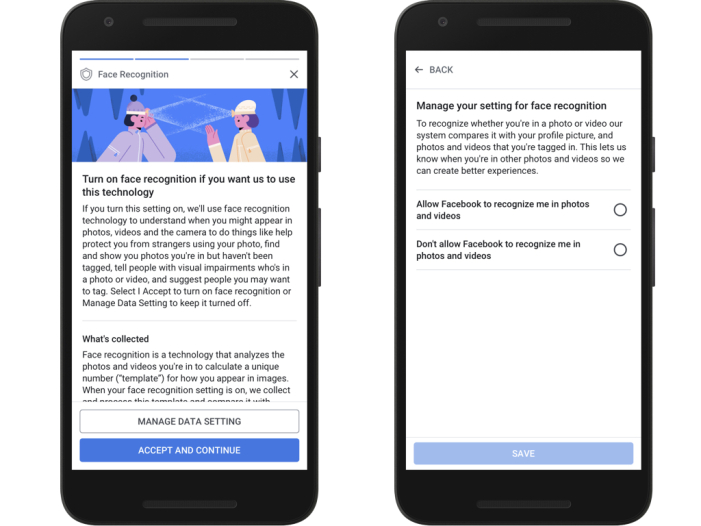
Facebook is rolling out new privacy tools to European users this week, including an option to opt-in to the company’s facial recognition software.
It’s part of wider updates to the company’s privacy features, with new choices being pushed out to users this week that enable them to manage how their data is managed on the site, to comply with new EU data privacy laws coming into effect in May.
– How does Facebook use facial recognition?
In the US and other parts of the world, Facebook has been deploying face recognition tools since 2011, using it to spot faces in photos and videos and help with tagging people in that content.
– How does the technology work?
If agreed to by the user, Facebook will assess existing images in which a user is tagged to build a “template” for that user. If that template is then spotted in an image where the user is not tagged, Facebook will prompt the user and the person who posted it to add the relevant name tag.

– Will the feature be switched on automatically in the UK?
No, users will have the choice to turn the feature on or off as part of the new privacy choices feature that all Facebook users will see. It can also be turned off within the platform’s settings.
However, tapping the “accept and continue” option within the privacy update will turn the feature on. Users need to select the “manage data setting” option and then choose if they would like to turn the feature off.
– What other choices does this update give users?
The new privacy tool will enable users to choose whether or not they want the company to use data from other websites linked to the social network to show them adverts. It also allows users to choose whether they want to continue sharing political, religious or relationship information from their profile.
– Why is Facebook doing this now?
The timing is not just a response to the recent Cambridge Analytica scandal. Facebook is increasing the level of choice users have over data privacy in order to comply with the General Data Protection Regulation (GDPR), a new EU data privacy law that comes into force at the end of May.
The regulation gives users greater power to access their data, and understand when, how and where it is used.


Comments: Our rules
We want our comments to be a lively and valuable part of our community - a place where readers can debate and engage with the most important local issues. The ability to comment on our stories is a privilege, not a right, however, and that privilege may be withdrawn if it is abused or misused.
Please report any comments that break our rules.
Read the rules here